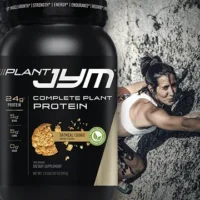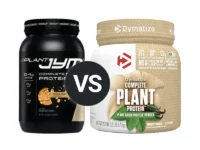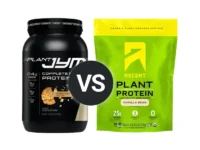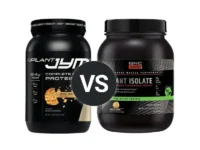Knowledge BaseYou're Questions Answered
What are the benefits of plant protein powder?
Plant protein powder is a popular dietary supplement derived from various plant sources, such as peas, rice, hemp, soy, and other legumes or grains. It is an excellent option for individuals seeking a plant-based protein source, whether due to dietary preferences, allergies, or ethical considerations. Plant protein powders offer a range of benefits that make them a valuable addition to a balanced diet.
Key Benefits of Plant Protein Powder
1. High-Quality Protein Source
Plant protein powders provide a rich source of protein, essential for muscle repair, growth, and overall health. Many plant protein powders offer a complete amino acid profile, containing all nine essential amino acids necessary for the body's functions. While some plant proteins are incomplete on their own, they can be combined (e.g., rice and pea protein) to provide a complete amino acid profile1.
2. Rich in Nutrients and Fiber
Plant protein powders often contain additional nutrients, including vitamins, minerals, antioxidants, and dietary fiber. For example, hemp protein is a good source of omega-3 and omega-6 fatty acids, while pea protein contains a significant amount of iron. The fiber content in plant proteins can aid digestion and promote a feeling of fullness, which may support weight management2.
3. Allergen-Friendly
Plant protein powders are an excellent alternative for individuals with allergies or intolerances to dairy, soy, gluten, or other common allergens. Options like pea, rice, and hemp protein are free from these allergens and are suitable for those with specific dietary restrictions.
4. Environmentally Sustainable
Plant-based proteins generally have a lower environmental impact compared to animal-based proteins. They require fewer resources, such as water and land, and produce fewer greenhouse gases. This makes plant protein powders a more sustainable choice for those concerned about environmental conservation3.
5. Digestibility and Absorption
Many plant protein powders are easily digestible, especially when they are free from common allergens. Some plant proteins, like pea protein, have high digestibility scores, meaning the body can effectively absorb and utilize the protein. Additionally, plant proteins are often free from lactose, making them suitable for individuals with lactose intolerance.
6. Variety and Versatility
Plant protein powders come in various types and flavors, allowing consumers to choose based on their taste preferences and nutritional needs. They can be easily incorporated into a variety of foods and beverages, such as smoothies, baked goods, soups, and more. This versatility makes it easy to include plant protein in different meals throughout the day.
- Messina, M. (1999). Legumes and soybeans: Overview of their nutritional profiles and health effects. American Journal of Clinical Nutrition, 70(3), 439s-450s.
- Slavin, J. L. (2004). Whole grains and human health. Nutrition Research Reviews, 17(1), 99-110.
- Clark, M. A., Springmann, M., Hill, J., & Tilman, D. (2019). Multiple health and environmental impacts of foods. Proceedings of the National Academy of Sciences, 116(46), 23357-23362.
Related Questions
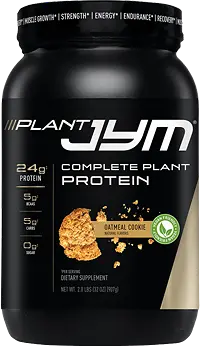
Your Answer
We are a participant in the Amazon Services LLC Associates Program, an affiliate advertising program designed to provide a means for us to earn fees by linking to Amazon.com and affiliated sites.

